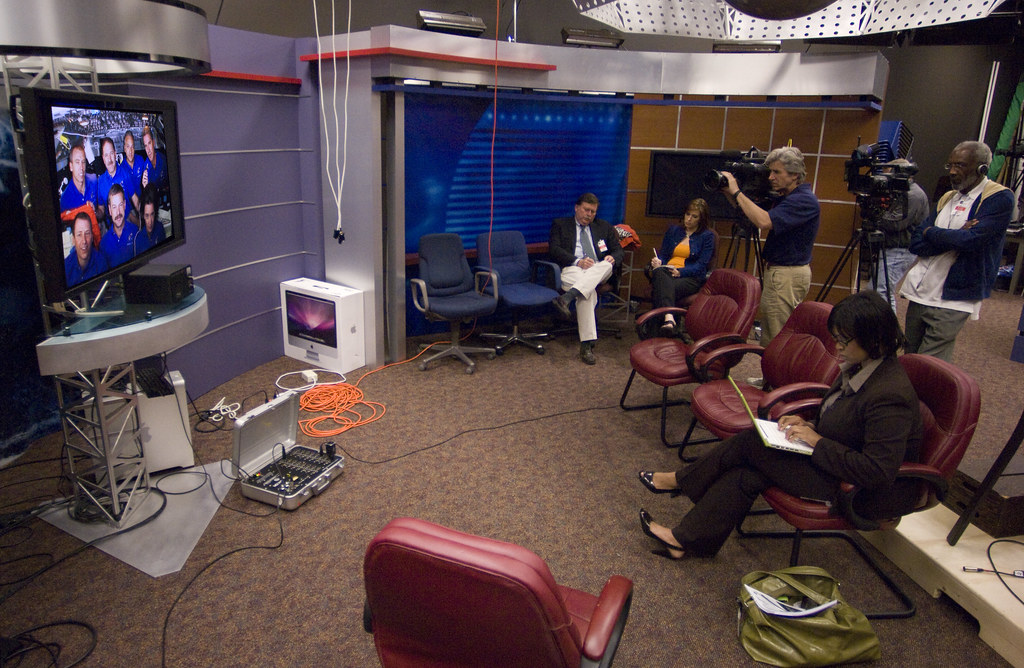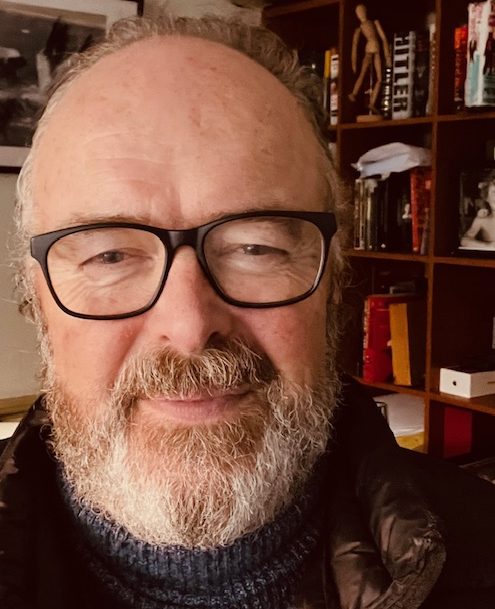
Communication differentiates us from all the other species on the planet. Yes, others can exchange information, and chat, but the development of our ability to use language was central to our development. From the early beginnings of civilisation, humans began working together, in teams, to go from making stone tools to the present day when the exchange of ideas and passing of knowledge is the core of our daily lives.
The power of communication was soon recognised as the source of political power, alongside the ability to club someone on the head harder than the next guy.
Propaganda began early. The first coins with the leader’s head stamped on the metal were in the Lydian Empire, in Turkey. The boss was associating himself with money, and therefore the wealth of the empire. The Greeks and Romans used the coin trick, and added statues, images, writings, held huge public games and built palaces to, well, show off.
The kings and queens of Europe were at it too. Paintings were designed to present a favourable impression. The famous painting of Henry the Eighth by Holbein was a fraud. By them Henry could hardly walk, being riven with gout.
Religions use iconography to control their flocks. The Roman Catholic church encourages its believers to place statues in their homes, bringing the pulpit into the house to remind them of their obligations every time they are seen. Protestantism is less about imagery and more about reading the Bible, with quotations to justify every imposition of control.
Napoleon had posters placed all over the towns and villages of France, creating a relationship with the people. His portraits were magnificent, with him in the heat of battle, riding his wonderful white horse. One is left wondering how the artist got him to pose.
In 1916 D W Griffith directed the first epic film. Birth of a Nation is seen as an amazing technical work, while being totally racist. The Ku Klux Klan had almost disappeared by 1916, when the movie was released, but on seeing lots of men racing around on horses dressed in sheets with pointy hats, it grew again in the 1920’s, with thousands of recruits buying into Griffith’s ugly vision.
The rise of the Nazis is almost unfathomable. How did so many people, who had no history of that level of extremism, become part of the most evil regime in human history? Hitler is given most of the credit, but the genius was Goebbels. The arrival and uptake of radio, the opening of picture houses all over Germany, the electrification of public address systems, the used of flaming torches, huge spotlights, massive events, newspapers, films, and the stopping of all opposition voices gave Hitler total domination of political communication.
And the most important part of influencing people is frequency. The more often people hear a message the more likely it is to affect them. The constant barrage of Nazi propaganda was impossible to resist. People who if aske ten years before if they would support the Nazis would have thought you mad for even asking, but they were manipulated to become fervent followers of the Fuhrer. We would all love to believe that we would not have become Nazis, but that is wishful thinking.
Meanwhile in the late 20th Century we saw the growth of television, and news. In Britain, the BBC became the authority for impartial news coverage, but we now learn that it was nothing of the sort. The recent documentary about the development of the BBC opened the door on coverage of the Troubles being censored by the local senior management. In England, the miner’s strike was reported as if it was an insurrection. The press has always been right wing, as papers were wither started by the wealthy, or enriched those that started them. There is something consistent about the wealthy, they always drift to the right, mainly because they end up reading the Times or the Telegraph, both of which love to tell them how wonderful they are, and that they should be even richer, by paying less tax. which is, of course, what the owners want.
I worked in advertising and have had an ongoing interest in the power of communication and the media. Great advertising can influence, but bad advertising seen often is just as powerful, if not more so. I made dozens of ads for Crazy Prices, the locally owned supermarket chain, starring Jim Megaw. They were not great ads, many were price and ite, which had an extremely limited shelf life, but Jim became famous, and would be asked for his autograph while lying on a beach in Majorca. More people went to Crazy Prices because they liked Jim, he was a nice, ordinary guy, good looking, with a great smile. The staff in Crazy Prices were always friendly to customers, as they felt they had to represent Jim well. He would visit the stores and chat to the checkout people, who would then go home and tell their friends they were talking to him. Crazy Prices ads are remembered to this day.
We are all affected by the media we see, read, and hear. It is impossible not to be. We give credibility to people for being on the TV. We are impressed by those that can talk with a microphone in front of them. We get excited by meeting someone famous, and actor or presenter. And we subconsciously give their words more credence. The association of the message with the celebrity makes us believe it must be more valuable. That’s why when my Dad made an ad for Cookstown Sausages with George Best in the late ’60s, sales grew from five tons a week to over one hundred tons a week with three months, because George was telling us to eat the Best family sausages.
Now we have influencer marketing. People, really famous, and people famous for being famous, as well as those that have built their own audiences will promote products in return for cash, or create their own brands, and people will buy on their recommendations.
It is election year all over the world. In America one of the things to look out for is the amount of money being raised and spent by the candidates. What are they doing with those dollars? Spending it on advertising of course. Billions will be spent. On radio, television, and now social media. Facebook, X, Instagram and TikTok will see the dosh rolling in, as the parties and potential Presidents try to outspend their opponents, because it makes the difference.
In the UK radio and TV political advertising is not allowed, but the use of social media is now the go to outlet. Well-designed campaigns put messages targeted at the specific needs of the audience. A twenty-five-year-old single mother is not necessarily going to be interested in the impact of Brexit, so messages about child health, education, social services support and how they will improve if you vote for x will influence her.
But outside the world of paid for media we have the BBC. The most powerful media organisation in the UK, it wields power across television, radio, websites, and social media. The oversight is weak, and the monitoring of its neutrality is almost non-existent. locally we see the Nolan Show on radio and Nolan Live on television having a massive political imbalance with politicians and journalists from the hard right unionist camp given extended opportunities to promote their messages.
It matters. If we are to have a diverse country, the BBC needs to reflect that diversity. It is funded by people from all parts of the community.
The media in the UK damages the country. The press is predominantly owned by hard right wealthy people who promote their own vested interests. They now have television channels such as GB News that make no pretense of impartiality but are not held to account. These channels feed division, as it suits their goals to have a divided society. They have a conservative economic ideology that has every person for themselves at the core.
The media matters enough to need control. Ownership outside the country has suddenly become an issue when a sovereign wealth fund in Dubai tries to buy the Daily Telegraph, but not when tax exiles own the Mail and the Times group. Ofcom calls out GB News for breaking the regulations, but what happens? Nothing. The broadcast has already happened.
And we need to care, because at the end of the line, we are the people that are being targeted. You and I are in the sights of the media owners and editors. It is our freedoms that are being challenged and taken away because the media war is not fought on the street with weapons and boots, but in our heads. Frequent headlines about immigration make us not just think about it but impacts what we think when we see people of different ethnic backgrounds. Grouping people into race, religion, gender, sex or nationality dehumanises them. They are no longer seen or met as individuals; we have had preconceived beliefs thrown at us that we must make a conscious decision to negate. We see people with different clothes, who have made different choices about life, and we immediately categorise them, without meeting or talking to them as individuals.
We see it in Northern Ireland. Catholics and Protestants, Unionists and Nationalists, all presumed by those that don’t know them to have a range of views that we don’t like. And yes, they might want or reject a United Ireland, but what about all the things in common? They are neglected in the political discourse that wants division to continue. If we all got on the same plan, where would that leave the politicians and media pundits?
Thinking about the media can help. Start with knowing the bias of the


Leave a comment